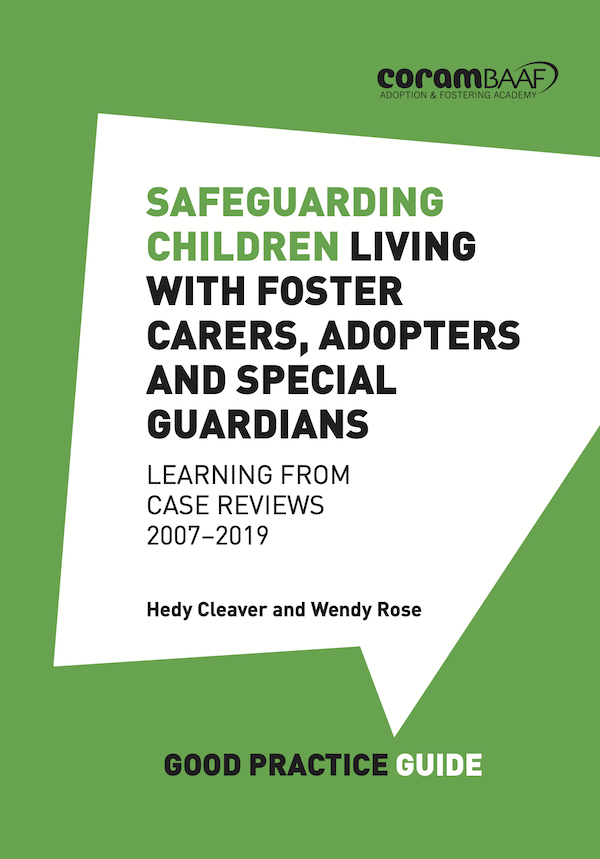
Safeguarding Children living with Foster Carers, Adopters and Special Guardians: Learning from case reviews 2007–2019
£24.95
Case reviews have played a critical role in helping organisations to improve the safeguarding of children. Where a child has died or come to serious harm, and abuse or neglect is known or suspected, local case reviews in England and Wales have provided useful explanations that can contribute to learning and change.
This good practice guide is based on a UK-wide study of 52 case reviews concerning 98 children over 12 years who died or experienced serious harm while living with foster carers, adopters or special guardians. It is the first to focus exclusively on cases of children in alternative family care. It shines a spotlight on issues particular to these children – the selection and assessment of their carers; the support both children and carers receive; and the supervision and management of such arrangements.
We cannot improve practice without understanding why particular mistakes or failures occurred and learning from them. Various factors, relating to organisational culture, systems and practice, can hinder practitioners and organisations from safeguarding children effectively. This study identifies recurring themes in the reviews and draws out the challenges and concerns for practitioners in promoting and safeguarding the welfare of children.
Rich with case examples and quotations from the reviews studied, the findings form an authoritative guide as to what can be done in day-to-day social work to reduce the risk of significant harm and child death.
This is a vital resource for social work practitioners and managers, panel members, commissioners, and all those involved in the care of looked after and adopted children.
Read the contents page and introduction
AVAILABLE IN EBOOK AND HARD COPY
Questions about eBooks? Check out our FAQs
HARD COPY
Reviews
This guide is well laid out and, despite the complexities of the subject matter, it is an accessible read for all involved in keeping children safe. We will be recommending this guide through our work with practitioners as well as to adoption, fostering and kinship panel members.
Ravinder Kaur and Maggie Grant, British Journal of Social Work
This study aims to help practitioners adapt their practice in order to keep children placed away from home safe from death or significant harm. This book would be of use to those involved in the assessment and support of adults providing care for a child through one of these arrangements, as well as those involved in the placement review process. It is written in a clear and accessible manner, bringing a fresh perspective to the information that has been gathered across a range of serious case reviews.
Alex Jennings, Independent Social Worker
